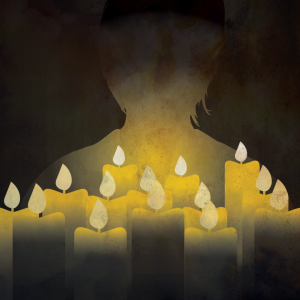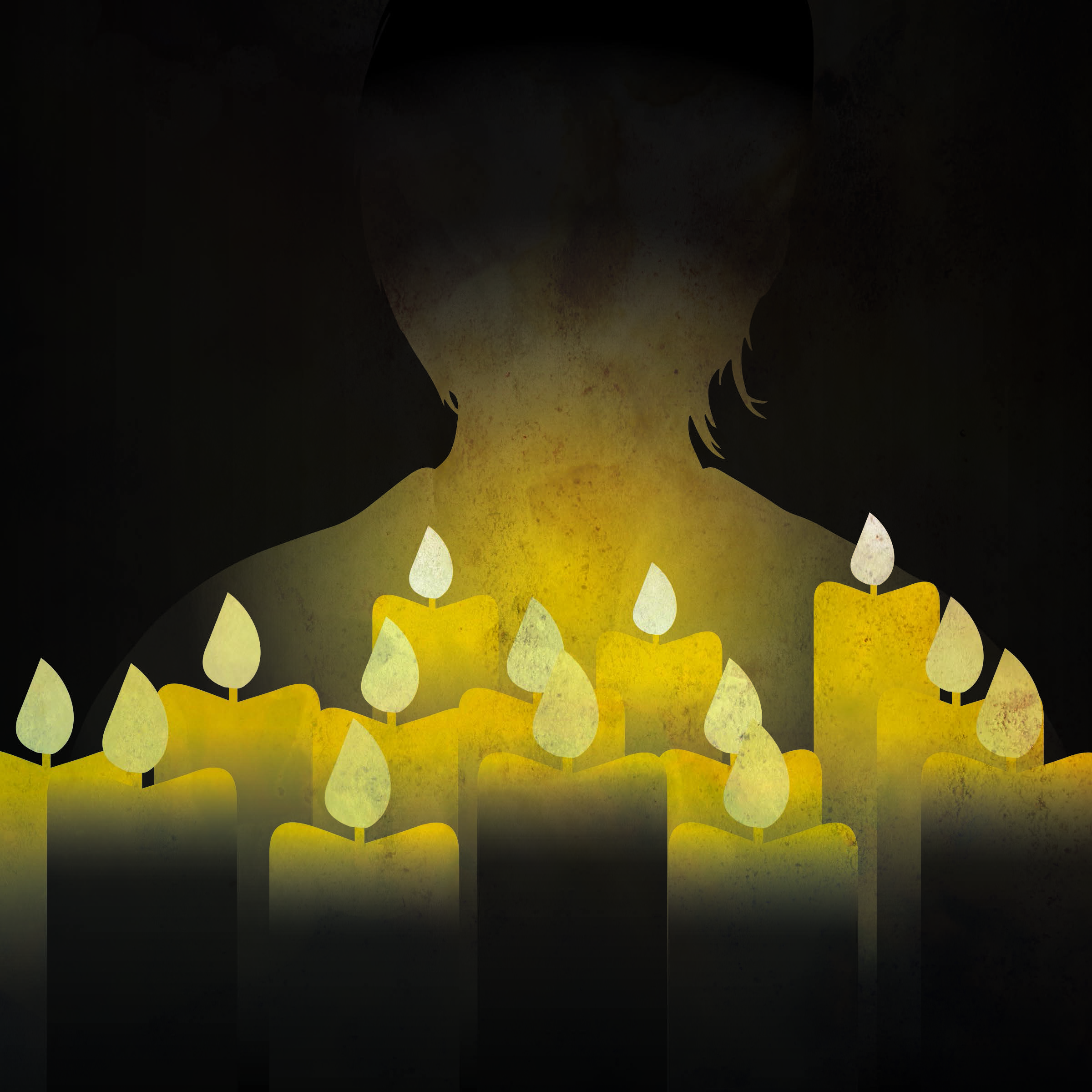Francine Pelletier discusses Marc Lépine’s suicide note and how feminism has changed in the last 25 years
On Dec. 6, 1989, Montreal and Canada changed forever.
On this day, a 25-year-old man named Marc Lépine walked into École Polytechnique, an engineering school affiliated with Université de Montreal, carrying a Ruger Mini-14 semi-automatic rifle and a hunting knife. He walked into a classroom on the second floor, and asked that the men and women separate, before asking the men to leave. Nine women were left behind. He said, in French, that they were all feminists, and then shot all of the women in the room. Six died from their injuries.
He went to other parts of the school, shooting as he went. A total of 14 women died that day, and fourteen others were injured (10 women and four men). He then killed himself.

This act was the first shooting of its type to take place in Canada, and a direct act of violence not only against women, but against the feminist movement.
Two days after the shooting, part of Lépine’s suicide note was released. On it were 19 women’s names. Before listing them, he said, in French, “The lack of time (because I started too late) has allowed these radical feminists to survive.”The list included a series of seemingly random women, some more known than others, from politicians to female police officers. It also included Francine Pelletier, a journalist who co-founded a feminist magazine called La Vie en Rose in the ‘80s. At the time, she was working at La Presse. After hearing that she was on the list, and that only part of the letter was released, she decided to make the necessary steps in order to find out what the whole letter said. She wanted to understand what had happened.
This year marks the 25th anniversary of this event, which has become known as the “Montreal Massacre.” Dec. 6 is also now the National Day of Remembrance and Action on Violence Against Women, in order to pay homage those who died that day.
In order to commemorate the event, The Concordian spoke to Pelletier about her story, about how things have changed in the last 25 years, and about what feminism means today.
The Concordian (C): When did you find out that you were on the list of women who Marc Lépine wanted dead?
Francine Pelletier (FP): It was two days later. It was because the police reporter at La Presse, who was very well connected with the police force, relayed a part of the suicide note with a list of names, headed by a short sentence saying something to the effect that these women would have died had he had more time. So that part was leaked to La Presse, and I learned about it the day of the publication.
My boss, the Editor-in-chief, asked me if I had seen the newspaper today. I said no, and he said that I should brace myself. Then he told me [about the list] and that low and behold [I was on it] … no one, neither the police nor La Presse, had given us any sort of advance notice, which should have got me going in terms of ‘woah wait a minute, they are holding back the note, but releasing the names of the other women?’ Not exactly kosher.
So I then proceeded to get my hands on the note, the more important part of the note. I was refused first by the police, and then went to Access to Information, and, to my great surprise, I was also turned down there.
C: When and how did you get your hands on the letter?
FP: It was maybe a few weeks before the anniversary, so some time in late November 1990. I got a letter in the mail. It was a photocopy of the suicide note, and there was no telltale sign of where it came from … All I could deduce was that someone in the police force had gotten scent of my effort, and agreed with the fact that it should go public … I talked to Jacques Duchesneau (who was police chief at the time) a few years back, and he said, ‘oh I think that I know who sent it to you,’ and that is all that he would say, so it definitely came from the police force. Man, woman, who it was, I don’t know, and will probably never know, unfortunately.
C: Are you glad that someone chose to send you the letter?
FP: Oh my god, yes. First of all, part of the reason that we went into this psycho-drama was because we had never before experienced anything quite as brutal [as the shooting]. Not only mass murder but targeting women, of all things, is by far the most chilling, most disquieting event that I think [ever took place in Quebec], even beyond the October crisis.
The October crisis was part of a kind of radical militancy that was part of Quebec, people didn’t necessarily agree with it, but they knew about it, it wasn’t a surprise. [The Montreal Massacre] came totally out of the blue. And, as a result, the closer you were to the event, the more denial was at hand. Like I’ve said in the past, there were some editorials saying that this had nothing to do with women … He must have had some kind of mental health problem for sure, but that doesn’t preclude the fact that he had specific intentions, specific targets, as everyone has pointed out. If a guy had walked into a school and separated blacks from whites, the next day, everyone, no matter how crazy he was, would have called this a racist attack. And so there was a real tendency not to go there.
So the note, for me, first of all, was a judgement of his sanity. It’s an indication that for sure [this was an attack on women and feminists]. We knew … that he had walked into a classroom, the first classroom, and, before shooting, had said “you are all feminists.” And that was an indication of what was motivating him. But no one had wanted to give any sort of credence to that. Holding the note back of course didn’t help. Now, I had a note, and it was not an unreasonable rant … it was all very well composed and said, ‘I am committing suicide today, people will say that I am crazy, but here are my reasons. Feminists have ruined my life.’ For me, to have that note, it was a way to counter the whole discourse, it was my way to say, ‘can we talk about the cause for all this?’ That this was in fact, not only an act against women, but an act against feminism? I have to say that it did not immediately have that effect. It took 20 years to do any kind of serious talking about this. It took 20 years for a film to come out, 20 years to have a symposium … there was no book, no seminar, no nothing! It took 20 years for that.
C: Why do you think that it was so hard for people here to admit that this was an act against women and feminists?
FP: Quebec had a way of thinking of itself as the most progressive place in Canada, and in many ways, it is. It occurred to me 20 years later, when I had to speak at the symposium that finally got off the ground, that it has something to do, maybe—and this is my explanation—with the Quiet Revolution syndrome. Quebec is a very distinct place, not only because of it’s language and it’s culture, but because of its history … In the ‘60s, we turned our backs on what was always the organizing principle of this place, the Church. People were mostly in rural areas, they were in places run by the church… With the Quiet Revolution, we went from a place where we had the most babies to the place where we had the least babies. In 15 years, that’s an incredible jump. We really turned this place around. And I think that as a result, we have a tendency to think that all the bad stuff is behind us. Nothing bad can happen to us now because we are an in control, we are progressive, we are looking forward and then Bang! This happens, which is totally out of nowhere. There was no plan to put that in our collective imagination, and I think that that is part of it.
C: Do you think that things have changed in the last 25 years?
FP: Yes, to a certain extent. It took some time … Little by little, we have moved away from the idea that this is an isolated case. It was a grueling acceptance that there is a link here between the violence that women are still subjected to, and that horrible event. We still have not gone the extra mile, which is to recognize that this was against feminism. And I think that that is partly because, by the late ‘90s, no one really cared about feminism. I think that that is changing now … I think that the fact that women realized that they are not out of the woods, you know, there is still the whole question of sexual aggression and domestic violence, and many other things, but those are two huge things that remain, that haunt women to this day. And I think that people like Beyoncé and others saying that feminism is important helps too. I think that there is a quiet reawakening towards the fact that we still need feminism. In that way, it is changing.
C: Why do you think the word ‘feminist’ carries such a negative connotation today?
FP: It has been kind of depressing, for women like me, who were very active in the ‘70s and ‘80s and were part of the second wave feminists and really thought that things were going to change in a profound way, and 20, 30 years later, we see that things have not changed in a profound way … It’s natural that the women coming after you do not want to identify in exactly the same way. It wasn’t something that was popular, it wasn’t really attractive for a lot of women. I think that that is changing. For me, the Gomeshi affair—I cannot tell you how much we should thank that guy—I think that it exploded, it took the lid off this dirty secret … I think that the kind of ‘oh my god’ that we felt in the wake of this on the part of men, on the part of society as a whole, was really quite impressive. I haven’t seen that in at least 30 years. I don’t know if that will bring lasting change, I have no idea, but let’s hope so.
Pelletier is currently completing the 2014 Michener-Deacon Fellowship for Journalism Education at Concordia.
On Dec. 6, a commemoration, hosted by la Fédération des femmes du Québec, will take place from 2 p.m. to 2:45 p.m. on the corner of Decelles Ave. and Queen-Mary Rd. A silent walk with candles will then take place at 3 p.m., which will go through the Notre-Dame-des-Neiges Cemetery and end at the Mount-Royal Chalet, where a vigil will take place between 4:30 p.m. and 6 p.m. For more information, visit the “Polytechnique – 25 ans plus tard” Facebook page, or click here.




